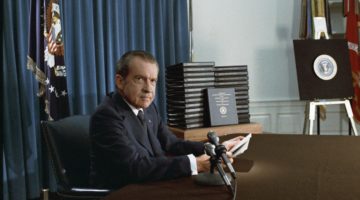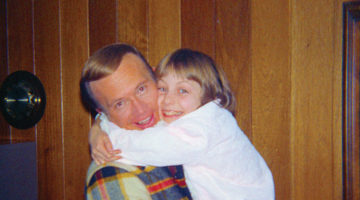Cannes 2012 Review: Killing Them Softly
 From a distance, the killer explains; that is from where he likes to kill. That is how you kill one softly. With a bullet from a gun into the head of another man perhaps, or with corporate greed and political corruption from the government down on to the masses. Either one.
From a distance, the killer explains; that is from where he likes to kill. That is how you kill one softly. With a bullet from a gun into the head of another man perhaps, or with corporate greed and political corruption from the government down on to the masses. Either one.
Killing Them Softly¸ a dark and dirty film directed by Andrew Dominik about crime and violence in an impoverished American city, it is punctuated early and often by American voices of power, including President Obama, discussing the country’s resilient spirit and the hopeful resurgence of a struggling economy. Press conferences are seen on TV in dingy bars, and news is played over the radio as old cars drive through the desolate and grimy landscape.
It’s sometime in 2008 in the lead up to the Presidential election, and in some hurting American city-Detroit, Cleveland, what have you—even crime and illegal gambling is feeling the effects of a recession. A pair of pathetic lowlifes, one more idealistic and naïve, the other simply oblivious, decide to rob a poker game to get ahead, with an easy target in line to take the fall. The industry (of crime) is then disturbed, as money is no longer flowing, and interested parties investigate in the form of a tie-wearing agent of sorts (Richard Jenkins) and professional killer Jackie Cogan, played by Brad Pitt.
Pitt, with his long hair, goatee, two-toned sunglasses, and black outfit looks natural holding a shotgun and a cigarette, but still feels a bit more Brad Pitt than Jackie Cogan. He is a bad guy of sorts, but in this movie everyone is—or perhaps in that case no one is. The first voice we hear is that of Barack Obama, and Mr. Dominik may have you believe that he is a much the antagonist as the robbers and murderers are.
The American dream has not been realized anywhere in this town, but it still lingers in the minds of some. Particularly in the head of the retched half of the two poker thugs, as he sees his new cash as an investment towards selling drugs leading of course to success.
The most innocent may be Frankie with his squeaky voice, the sensible of the two small-time crooks. He doesn’t want anyone to get hurt, and though he always chooses in the end to look out for his interests, he takes his time, resisting the need to throw anyone under the proverbial bus (read: in front of a loaded gun).
The audience too is guilty, of something to be sure. The extended and intimate scenes of violence, filled with blood, vomit, bone cracking, and moaning, are cringe-inducing, as is some of the dialogue, which among thieves, seems to only delve into rape and sex. What’s more, a lengthy scene of a drug high from the perspective of the user is as frustrating for the audience to watch as it is for the user’s friend who is trying to grab his attention.
The divisions are clear. There is the government at the top and somewhere down the line is a corporation, a conglomerate that sends out the unknown driver in Jenkins to deal with the sudden disturbance. He connects with Cogan, who connects with a fellow hit-man (James Gandolfini), and they proceed to work their way down the line seeking not retribution, but order. With order, comes money, and just as the voices from the TV and radio spout economic news, the discussions among the characters is about money: who gets what, and whether that’s enough in this economy to get by.
For better or worse, and it certainly teeters between the two, the actors in the film are all their typical selves on screen. Pitt cool and collected and in charge, Jenkins nervous and simple, Gandolfini arrogant and crass, and Ray Liotta as the pathetic patsy are all fine, but not novel. Jenkins and Pitt offer chuckles, reminiscent of their scenes in Burn After Reading, a film that similarly absurdly depicts the class divisions in life, and one where the idealists are punished, and plenty of blood is shed as those in power sit behind their desks. Or in this case, the driver’s seat.
And in that we have come to the message of the film. If you are not in the driver’s seat…well, you better be in the driver’s seat, because it’s a dark, demanding world out there, and you are wise to be looking out for yourself, because no one else is.
[star v=25]



